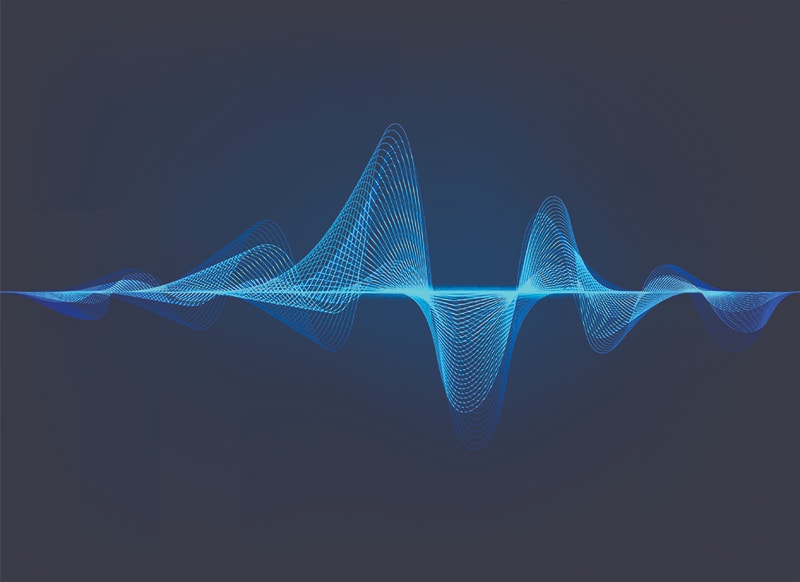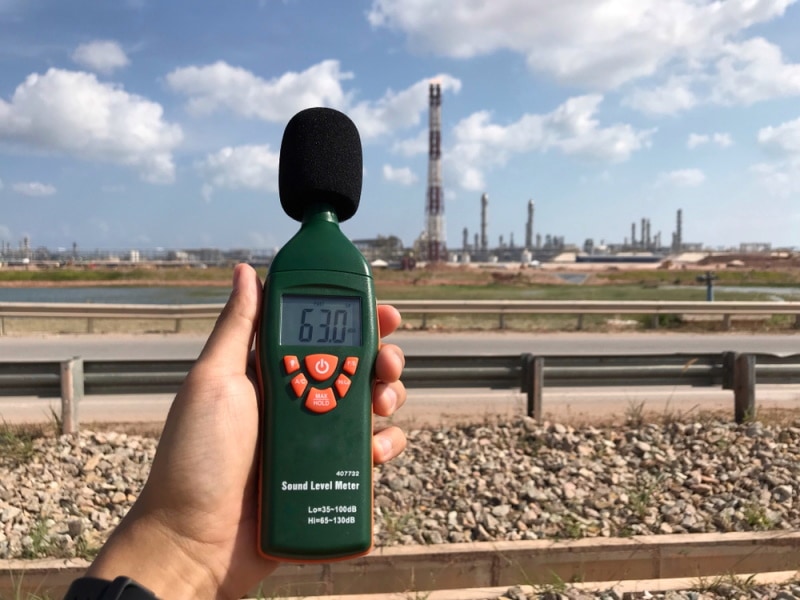How Loud Is 90 Decibels (dB)? With Noise Comparison Chart
-
Ed Malaker
- Last updated:

Your ears are incredibly sensitive and can detect small variations in volume, from the soft sounds of leaves rustling to the overbearing noise of a jet plane or a loud rock concert. However, volumes above 90 decibels can start damaging your hearing, and many wonder how loud that is. In short, it’s about as loud as a lawn mower if you’re standing close to it. Keep reading, though, as we explain what a decibel is and provide you with a chart that shows the volume of different things so you can get an idea about what it all means.

What Is a Decibel?
A decibel (dB) is a unit of measurement that determines how loud something is. The scale ranges from 0 to 194, which is when the sound waves become a shockwave. Lower numbers represent quieter sounds, while higher numbers represent loud ones. A slightly confusing thing about the scale is that it’s logarithmic instead of linear, which means volumes can get loud quickly. For instance, 80 decibels is approximately twice as loud as 70 decibels, and 90 decibels is nearly four times as loud.

How Loud Is Too Loud?
Most experts agree that humans begin to experience pain and discomfort when listening to sounds louder than 105 decibels, and most people start to cover their ears in pain at around 120 decibels.1 The eardrum could rupture if the volume increases to 140 decibels, causing permanent hearing loss.
How Do the Different Sounds We Hear Compare on a Decibel Chart?
| Volume in Decibels | Sound |
| <10 | Hearing threshold |
| 10 | Pin drop |
| 20 | Rustling leaves |
| 30 | Whisper |
| 40 | Computer |
| 50 | Light Traffic |
| 60 | Conversation |
| 70 | Shower |
| 75 | Vacuum cleaner |
| 80 | Alarm clock |
| 85 | Snowblower |
| 90 | Lawnmower |
| 95 | Belt sander |
| 100 | Motorcycle riding |
| 105 | Sporting event |
| 110 | Rock band |
| 120 | Thunder |
| 125 | Balloon popping |
| 135 | Air raid siren |
| 145 | Firecracker |
| 150 | Jet fighter |
| 160 | Shotgun |
| 170 | Vehicle airbag |
| 180 | Rocket launch |
How Can I Tell If a Sound Is Too Loud?
- There are many commercial sound level detectors that you can purchase to find the volume of a specific sound. Many people use these machines to set up speakers in their homes for optimal enjoyment, and they can quickly tell you if a sound is too loud.
- If you are having difficulty communicating with someone over the noise in the environment, it’s likely too loud, and you should move to a quieter area or use earplugs.
- If you hear muffled sounds when you leave a noisy environment, there’s a good chance that it was close to the threshold of being too loud.
- If your ears start to hurt due to a noise, it’s likely too loud.

What Can I Do to Protect My Hearing in a Noisy Environment?
The best way to protect your hearing from loud noise is to avoid it. Never get close to noisy items like a running engine, speakers, or horn. Many different kinds of earplugs will reduce the surrounding volume by a specific number of decibels to protect your ears. Earmuffs are also great for lowering volume levels and protecting the entire ear in a dangerous environment.
How Long Can You Listen to a Loud Sound?
Many factors can come into play when you’re listening to a loud sound that can affect your ability to hear it for an extended time without pain or injury, including your age, health, and how often you are in the vicinity of loud noises. Most people can listen to a sound right at the threshold of 90 decibels for several hours without pain, discomfort, or damage to their hearing, but if you do experience pain, muffled sounds, or other side effects, you will need to reduce your exposure.
We recommend seeing a doctor to ensure that no underlying health problems are causing your sensitivity if you experience pain or discomfort quickly at normal volumes lower than the threshold of 90 decibels. You should also visit the doctor if you notice a constant ringing in your ears or have difficulty hearing sounds that other people hear easily.
What Causes Hearing Loss?
A single loud sound well above the threshold of 90 decibels can cause permanent hearing damage. Repeated exposure to loud sounds can also damage hearing, even at quieter volumes. Always wear hearing protection when exposed to sounds above 90 decibels.

Conclusion
The standard volume threshold for hearing is about 90 decibels, which is roughly as loud as a running lawn mower when you are standing close to it. Repeated exposure to volumes above this level can damage your hearing permanently, so you should always put in a pair of earplugs if you anticipate loud sounds or if it becomes difficult to communicate with those around you due to the noise.
Featured Image Credit: @chairulfajar_, Unsplash
Contents